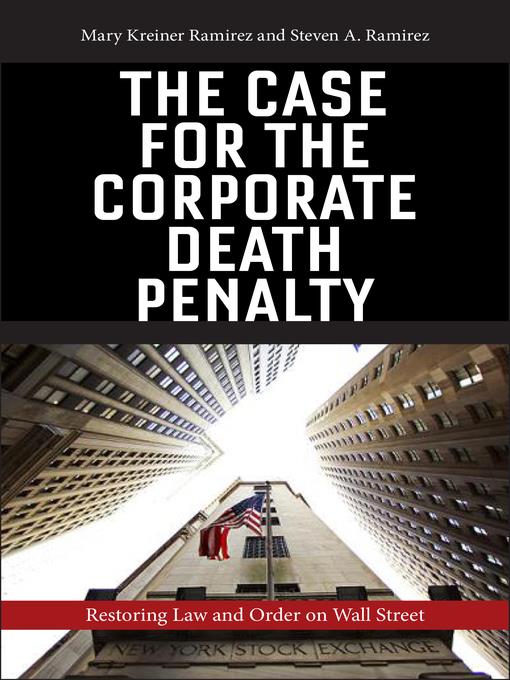
The Case for the Corporate Death Penalty
Restoring Law and Order on Wall Street
کتاب های مرتبط
- اطلاعات
- نقد و بررسی
- دیدگاه کاربران
نقد و بررسی

October 31, 2016
This is a thought-provoking call for the prosecution of criminal bankers—and investigation into why such prosecution has not yet occurred—from two who should know: Mary Kreiner Ramirez, a former prosecutor for the Department of Justice Antitrust Division, and her husband, Steven A. Ramirez, a former SEC enforcement attorney. They charge that in a “historically unprecedented breakdown in the rule of law,” the U.S. government failed to prosecute the people at the center of the 2008 financial crisis, opting instead for a huge civil payment from shareholders. Providing some historical context, the authors demonstrate that never before in modern U.S. history have white-collar criminals enjoyed such immunity. At the time, the argument was made that prosecuting bank employees would irrevocably harm the financial industry and economy, but allowing lawlessness into finance, the Ramirezes observe, lowers trust from investors, both foreign and domestic, yielding just as much harm. Their solutions include a DOJ corporate fraud division, getting rid of nonprosecution agreements, the titular “corporate death penalty” (breaking up the national banks), and, most importantly, educating and engaging American voters. This is an informative and at its heart very angry book, and is fascinating—if slightly academic—reading for everyone who’s still smarting from the crash.

November 15, 2016
Here, Mary Kreiner Ramirez (law, Washburn Univ. Sch. of Law) and Steven A. Ramirez (law & director, Business Law Ctr., Loyola Univ. of Chicago) offer a legal brief for the titular prosecution case. The authors, both former federal prosecutors, claim a simple thesis: it would be beneficial to break up large banks and thereby establish a kind of corporate death penalty. After an introductory chapter, they address each culprit in turn, discussing the misdeeds of Countrywide Mortgage, Lehman Brothers, AIG, and Goldman Sachs. As with a legal brief, the book is not a balanced account--it simply presents an argument. The authors believe that politicians favor megabanks because of their largesse, and that financial incentives to succeed at these institutions promote fraud and therefore they must be dismantled. VERDICT Readers should choose first Samuel W. Buell's Capital Offenses: Business Crime and Punishment in America's Corporate Age, which presents a more nuanced view of the issue and proposes more regulation instead of disassembling the banks, then decide who is correct.--Harry Charles, St. Louis
Copyright 2016 Library Journal, LLC Used with permission.

























دیدگاه کاربران